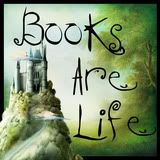What gave you the idea for A Spy in the House?
I’ve always been dissatisfied with way Jane Eyre ends. I don’t admire Rochester and always find that final, “Reader, I married him” very disappointing, especially since Jane’s a rich, decently educated lady by that time. Then I started thinking about other, poorer women of th e Victorian era – maybe equally clever and rebellious, but without Jane’s inheritance or education. And their odds were absolutely ghastly. So the Agency novels are partly about imagining an alternative fate for a smart, brave, doomed nobody like Mary Quinn.
e Victorian era – maybe equally clever and rebellious, but without Jane’s inheritance or education. And their odds were absolutely ghastly. So the Agency novels are partly about imagining an alternative fate for a smart, brave, doomed nobody like Mary Quinn.
Why did you choose the setting?
I did my PhD in Victorian literature and culture, and spent 6 months living in Bloomsbury while researching my dissertation. I fell in love with the city and became obsessed with walking around it early in the morning, when it was quiet. The Victorian city is very much still there! And the Great Stink of 1858 – a season when heat and river pollution became absolutely overwhelming and paralyzed London – was much too tempting to ignore.
What is your writing process like?
Insane. I get an idea and flesh it out. I start to write, then get bogged down. I re-plot things and start again. At the two-thirds mark, I hate everything. I often re-plot the book again, and things go in a rush from there. I need to work on my process!
Favorite Music?
Swoony, complex pop like Rufus Wainwright and Florence and the Machine, or austere classical, like Brahms.

Movies?
I like action flicks – the dumber the better. I can’t explain it.
When did you know you wanted to be a writer?
I think I’ve always wanted to be a writer, but didn’t find the courage to admit it until I was near the end of my PhD. I didn’t want to be a professor and suddenly felt that it was my last chance: I had to write a novel, or else get an academic job. I chose the novel.
How long did it take you to write A Spy in the House?
18 months.
What is your favorite book?
Middlemarch, by George Eliot.
If you could have any guest over for dinner, dead or alive, who would it be?
How about a fictional guest? Lord Peter Wimsey, from Dorothy L. Sayers’s mystery novels.
What would you consider to be the hardest thing about writing?
Self-discipline!
The easiest?
The surge of ideas you get as you’re plotting. It’s such an adrenaline rush.
I’ve always been dissatisfied with way Jane Eyre ends. I don’t admire Rochester and always find that final, “Reader, I married him” very disappointing, especially since Jane’s a rich, decently educated lady by that time. Then I started thinking about other, poorer women of th
 e Victorian era – maybe equally clever and rebellious, but without Jane’s inheritance or education. And their odds were absolutely ghastly. So the Agency novels are partly about imagining an alternative fate for a smart, brave, doomed nobody like Mary Quinn.
e Victorian era – maybe equally clever and rebellious, but without Jane’s inheritance or education. And their odds were absolutely ghastly. So the Agency novels are partly about imagining an alternative fate for a smart, brave, doomed nobody like Mary Quinn.Why did you choose the setting?
I did my PhD in Victorian literature and culture, and spent 6 months living in Bloomsbury while researching my dissertation. I fell in love with the city and became obsessed with walking around it early in the morning, when it was quiet. The Victorian city is very much still there! And the Great Stink of 1858 – a season when heat and river pollution became absolutely overwhelming and paralyzed London – was much too tempting to ignore.
What is your writing process like?
Insane. I get an idea and flesh it out. I start to write, then get bogged down. I re-plot things and start again. At the two-thirds mark, I hate everything. I often re-plot the book again, and things go in a rush from there. I need to work on my process!
Favorite Music?
Swoony, complex pop like Rufus Wainwright and Florence and the Machine, or austere classical, like Brahms.

Movies?
I like action flicks – the dumber the better. I can’t explain it.
When did you know you wanted to be a writer?
I think I’ve always wanted to be a writer, but didn’t find the courage to admit it until I was near the end of my PhD. I didn’t want to be a professor and suddenly felt that it was my last chance: I had to write a novel, or else get an academic job. I chose the novel.
How long did it take you to write A Spy in the House?
18 months.
What is your favorite book?
Middlemarch, by George Eliot.
If you could have any guest over for dinner, dead or alive, who would it be?
How about a fictional guest? Lord Peter Wimsey, from Dorothy L. Sayers’s mystery novels.
What would you consider to be the hardest thing about writing?
Self-discipline!
The easiest?
The surge of ideas you get as you’re plotting. It’s such an adrenaline rush.
Which of your characters do you feel is most like you?
This is such a cliché, but there are bits of me in all of them. I don’t think I resemble a single one in general.
What advice would you give to an aspiring writer?
You have to be a reader before you can be a writer.
This is such a cliché, but there are bits of me in all of them. I don’t think I resemble a single one in general.
What advice would you give to an aspiring writer?
You have to be a reader before you can be a writer.
I love love love A Spy in the House so far and plan on finishing it in the next day. I'm so happy this is a series as I can't imagine giving up these characters yet. Thank you Y.S. Lee for the amazing interview and I can't wait to read the rest of the series!













4 comments:
Awesome! I can't wait to read this, the cover is amazing. Thanks for the interview!
Nice interview, I always love reading about the writing process, how long it takes to wirte novel, research done, etc. Good question about who to invite for dinner in the literary world :
Writing process and the time are always my favorite pieces of information as I like to compare them to my own to make me feel less crazy!
Thanks for commenting :)
So glad you're enjoying Spy, Christina. Thanks for having me here today!
Post a Comment